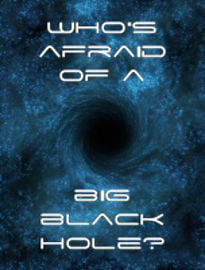Why Do Viruses Kill?
 The world stood in fear of an emerging new disease that threatened to kill millions.
The world stood in fear of an emerging new disease that threatened to kill millions.
A new flu variant H1N1 had arrived. In the UK alone, 65,000 deaths were predicted. Yet to date, these dire warnings have not materialized.
If this latest pandemic has taught anything, it is just how little is understood about the invisible world of viruses. But that has not stopped scientists trying.
Horizon follows the leading researchers from across the world, who are attempting to unravel the many secrets of viruses to understand when and why they kill.




These scientists are sick f****. Talking about viruses as they are something cool.
doesn't make sense for virus to kill its host?
why not? humans are destroying our own habitat too.
which shitty logic is that scientist/professor following?
I love teaching science; just finished the chapter on viruses. Just read a brand new one is spreading here in China (H7N9--a mix of 3 avian flus). I'm sure it's already too late to stop it from spreading if it's a low-pathogenic flu in the birds, especially the wild birds. I'm just hoping it won't mutate into the next pandemic.
hey Charles long time. glad you found a way to get back. hope things are well
Things are ok, but I'm missing the U.S. a lot now. I want to immigrate with the family in 2014 if I can find a way. I got a Wuxi China Bengal Dog puppy (so pretty). People don't think they are real, but I thoroughly examined her--The stripes are real. The only question is if she will keep them as an adult as I can't find any adult dog pictures of them. She's a new breed of some kind, but I'm sure she has Shir Pei in her (lots of skin) to love! My friend, Fred as a black phase Wuxi pup and I've read they turn coal black as adults. My Wuxi is brown with black stripes not black with orange stripes, so I think she's the real deal. Waiting to see in about 2 more months.
Hi Charles, off topic I know, but as you realize you are part of SeeUat Videos community big time, you are our in-house religee, lol.
Need your sane input on "Why I am no longer a Christian" doc on SeeUat Videos on the ongoing posts, don't worry if attacked we have your back, see you there.
I like the very first line in the description: "The world stood in fear of an emerging new disease that threatened to kill millions."
No, actually it SHOULD read: The United States stood in fear of an emerging new disease...."
Please, please, PLEASE AMERICA... SIT THE F*CK DOWN, and RELAAAAX! Not EVERYTHING is out to get 'cha. For the rest of the world we mostly see a nest full of angry hornets... with GUNS.
Really? Because they took away our guns years ago.
The real lesson of H1N1 is: "If your first reaction is to scream 'THE SKY IS FALLING! WE'RE ALL GONNA DIE!' it probably isn't. Chill out."
This documentary is a very watchable presentation of the story of viruses---what they are, how they do it, where they fit on the tree of life, why they are so successful. It's both academically sound and interesting to the lay person. I'd give it an 80% "fresh tomato" rating.
One thing I noticed is that biologists are guilty of inadvertently fostering an 'intelligent design' paradigm with the language they use in describing biological organisms.
They use words like "clever", "planning", "strategic" when talking about the descending modifications of organisms (ie; 'speciation') as if these viruses were either being manipulated by some outside supervisory intelligence or were themselves capable of engineering themselves into new varieties to promote reproductive success. In fact, these modifications are random, hence non-directed evolutionary processes being directed by 'natural selection'.
So by using this descriptive shorthand when telling a story like this about viruses, they promote the public thinking of intelligence behind design.
Could it be because these experienced biologists have gathered an understanding, from their extensive expertise in the field, that biology, and all other forms of science are the study of what has been materialized by a universal system that is inherently intelligent.
In other words, nature is undeniably and incessantly intelligent in everything that it does because it is continuously governed by unchangeable laws, of which we have only begun to grasp but a small portion. When you understand that the entire biosphere is interwoven and that each organism is reliant upon another, it becomes evident that evolutionary changes are not random, they are as intentional and calculated as the transformation of an orange seed into an orange tree.
You're enslaved within the strict confines of modern academic arrogance, which masquerades itself as science, yet is just as resistant to change as the church that was once its enemy. You force yourself, like many others, to choose between "intelligent design" (creation by a man in the sky), or evolution (that occurs as the result of random changes). If you open your mind and analyze the situation, it becomes obvious that life did indeed evolve, and that it was not necessarily intelligently designed, it evolved in a system that contains all of the environmental factors needed to create everything in nature today.
Nothing about it was random, and everything about it was intelligent. Does this HAVE TO mean that an individual divine being designed it or created these laws? No. It means that it continually creates itself, and as new components are inevitably introduced into the circle of existence, as surely as leaves appear on an orange tree, these additional lifeforms influence the course of evolution and in turn create their own destiny as well.
We are in the process of doing it now, as we engage in debates on the internet, we are continually perpetuating the expansion of new ideas that cumulatively impact the world in profound ways we could have never imagined. The simplest events are determined by unique circumstances, which are either the result of the activities/decisions executed by the evolving party, or its interaction with the environment that surrounds it.
I strongly urge you to watch Metanoia by Simon G. Powell. It is not about intelligent design, it is about the inherent intelligence of nature. It explains the concept in details with many biological examples, and it will reveal to you a new way of thinking about evolution and the universe. I held the same opinions as you once.
@documental~
I understand your point. Still I think we just project our own preferences for 'connections' and cause & effect meanings into our everyday language. This habit permeates all societies, schools of knowledge and memes. It's a form of shorthand that is not really justified by the science but it's convenient when describing the processes in social and academic settings.
PS: I was thinking recently that all the great great organizing principles of science tend to permeate everything, everywhere in nature. Sort of like the Golden Ratio is found everywhere in all its relentless symmetry.
@ Lary9:
In the interest of clarity, I want to add a bit to this discussion, because this argument occurs often in many forms.
You probably have noticed such occurrences as prevalence of the golden ratio because the "great organizing principles of science" are such because they are natural. Consider: it isn't that these scientific principles permeate everything, everywhere in nature; rather, the "principles" are functions of nature. We denote "principles" as we strive to understand and explain what is inherent to nature, and nature is everywhere. The principles of science are the principles of nature in the form most sensible to man.
Conflict often arises when people mistake "man" for the originator of this "intelligence." Indeed, the complex systems in nature can be declared intelligent because it is by virtue of nature that we have attained our collective intelligence. Our intelligence can never surpass what already is in nature; when we forget this, the result is often an unwarranted scientific hubris. So as a rule, I'm generally cool with talk of intelligence in natural processes, even a God in this intelligent sense, as this is how we relate and the information is being related to us. However, I'm not cool when people come along and want to attribute a form, name, image, or way of communicating with this force, which is the case in most religions.
It seems that alot of you forget that this is a documentary aimed at the general population. The documentary is meant to explain the aims and purposes of viruses to the public in a way that everyone can understand. If you are looking for a more complex way to view the microbial world then i think that this is not the site for you. I found it to be a strange yet informative way to view the world of the virus. Keep them coming.
@ gero2006
I think the "anthropomorphising myths", as you call them, are simply there to make the documentary more palitable for the unscientific minds of the pop culture public. People who do not understand medical and scientific jargon relate better to this anthropomorphic language, I do agree though that it is potentially misleading as it implies that viruses have the ability to think and stradegize.
This same language is often used in the Bible when speaking of God. The Bible often refers to God as a physical entity with human like characteristics. It is there for the same reason; to make God, a potentially complicated concept, easier to understand or relate to. In reality the peoples that wrote the Bible did not think of God as a physical human like presence at all, nor do most theologians today.
The bottom line is that humans relate best to human like entities, no surprise there really. Again I would say you are correct though in your assertion that this method should have been clearly explained, otherwise it is some what misleading. You are also correct that this was a perfect oppurtunity for them to explain why this stradegy of myth making and anthropomorphic language is valuable to science.
By the way, you are very well spoken and seem a very intelligent person when it comes to viruses, and science in general. May I ask if you happen to be a doctor, virologist, or scientist your self?
@Achems Razor
Dr. Mercola is a wonderful human being, sure wish he was single !
prevention and or developing an immunity naturally is the only cure for any disease or virus ...i think
The programme makers claim to be interested in 'when viruses kill' but they do not define what they mean by 'when'. Are they interested in sequence, chronology, myth, history or what? Instead of an explicit, carefully argued case we are offered a very simplistic account of (a) the evolution of viruses and (b) of epidemiology. Evolution and epidemiology are juxtaposed as if they have the same relationship to temporality and/or causality and thus could be cobbled together into an implied answer to the question 'when do viruses kill'. Evolution and epidemiology are no more alike than myth and history. Because it never explores the meaning of its own terms, this documentary can only offer a hotch-potch of half-baked ideas about 'when viruses kill' that explains nothing.
The programme makers claim to be interested in 'why viruses kill'. They do not explain why they are interested in 'why' rather than e.g. 'how' although 'how' seems a more obvious question for science to attempt to answer. Nor do they explain to the viewer that asking 'why' anthropomorphises viruses because it implies human-like intentionality or agency on the part of viruses. By exploring 'why' this documentary leads the viewer into the realms of fantasy but it does not warn the viewer that this is what is happening. Thus the documentary is quite devious and potentially deceptive.
All of the scientists in this documentary offer anthropomorphising myths about viruses. For example, flu "forces you to unwittingly pass it on" and "at heart it loves to be in a great migrating swan". HIV is "the king of clever viruses" but all the same "it makes mistakes" and "its sloppy". Viruses are presented as 'masterminds' with "quick and dirty" strategies which they "like to use" in "war" against mankind. But viruses are not just fighters they are also lovers -- engaging in "viral sex", like "two parents" and "giving birth to completely new viruses". The myths these scientists tell about viruses are very similar to the myths they tell about themselves and other scientists -- exemplified in the "one man doing all he can" lone hero in the war against viruses which is invoked several times in the course of this documentary (e.g. Prof. Wimmer).
This myth-making is fascinating and creative and worthy of study in its own right. Frustratingly, the documentary does not explore it or explain why myth-making of this kind is essential to the development of science. In popular culture science is about reason, facts, numbers, and other 'dry' processes. The reality is that science is as creative and imaginative as art and depends even more on myth for its explanations than religion does. Myth-making in science is not 'wrong'. But popular culture often assumes it is. This documentary could have done a great service by challenging the errors in popular culture but it fails to do so. This is very disappointing.
Rather than engage in critical analysis of myth-making, the documentary makers simply let the scientists tell their myths to camera. By not drawing attention to the myth-making, the programme allows the myths to go unchallenged. In popular culture science is about 'facts'. Because this documentary does not draw attention to the myth-making it allows the myths to be misunderstood by a viewer who is drawing only on popular culture. For such a person the programme is telling 'facts' not myths about viruses, their evolution, and epidemiology. This documentary helps to reinforce major misconceptions about science. It does a real disservice to science and to popular culture. Because there is no explicit discussion about the role of myth-making in science we are left wondering is it just the 'man in the street' who is deceived or have the documentary makers and the scientists themselves failed to recognise that they are dealing with myths not facts. How deep is the intellectual rot?
Thus the documentary sets out to explain 'when and why viruses kill' and it fails to do either. It offers no coherent account of when viruses kill. Its exploration of 'why viruses kill' simply ducks all the important questions to reinforce a popular culture that totally misrepresents science. If you want to understand viruses then watching this documentary is a waste of time. If you want to understand how some scientists and some television documentary makers willfully misrepresent science then watch it.
Pharma companies don't have to do a thing. Just let CNN spread the hysteria. They are incredibly good at it. The more fear, the more people watch the news. The more they watch the news, the greater the chances they will watch CNN. The more they watch CNN, the better the advertising revenue. The better the advertising, the more people buy. The more people buy, the better the economy. Therefore, pandemics are good for the economy.
Karl:
Coconut oil makes you loose weight too. I use it in the Philippines. They gave it to cows to make them fatter, and all the cows lost weight (but reamained healthy). That's how they found out it helps you loose weight as well as the other health benefits. It's super good stuff.
What?!? I keep trying to make a comment, but it just disappears. I was trying to add a link to a H5N1 flu (bird flu) website. I hate haveing typed for 15 minuts just to have it evaporate and not even go to moderation. That happened twice. :-(
Interesting doc.
Coconut oil kills viruses even HIV! Google it and read for yourselves. Knowledge is power.
I haven't received a flu shot since my late teens and have rarely gotten any virus. Those that I did manage to suffer from, were combatted with plenty of rest and fluids. I needed my immune system to do it's thing...and without using a completely useless antibiotic (like so many people unfortunately do) or relying on some random, shot-in-the-dark (pun intended) flu vaccine. Oddly enough, some of my friends/family that get the seasonal flu shot get sick anyway, sometimes shortly thereafter; it doesn't seem to do them any good, but it should if they are exposed to the correct virus for which they were vaccinated. It's a gamble, really.
I think vaccines are an excellent, preventative measure with regard to certain diseases and outbreaks. However, until a pandemic comes closer to my community and people start dropping dead in massive numbers, I will not receive a flu shot or vaccine just because there is a media circus whipping people into a frenzy. They contain potentially harmful stabilizing and delivery ingredients (goodness knows what else is in the vaccine), in addition to being only a predicted virus for the season.
No thanks, I'll pass. I'm not a gambler with my health if I don't have to be.
Anyome who has issues with viruses should watch House of Numbers by Brent Leung (2009) to curb their hysteria. The trailer is on youtube. There are too many legends and not enough facts.
@Achems Razor
I agree with you, but viruses are not living - no respiration, nor transpiration of nutrients from the environment and other indicators defining living tissue are not met for viruses in the conventional sense
As for the potential for unethical behaviour consider the following social engineering tactic
Problem - Reaction - Solution
Problem - a new virus or mutation threatens human health through reported pandemic spread
Reaction - fear propogated through mass media, health authorities etc,.. leading society to demand a
Solution - new vaccines, or antiviral drugs
Question remains - did nature or man engineer the virus
Fact - big pharma is in business to make money ,.. PERIOD
Fact - you cannot sue a vaccine manufacturer if their vaccine causes you harm.
think about this before you line up for that shot in the arm
Very interesting doc. more than I expected.
Viruses are living entities, with a prime agenda, to replicate without actually trying to kill the host. Of course some viruses succeed, and other viruses don't.
But have to agree a bit on some of the money making scams of big pharma. using scare tactics that the world should get inoculated just because they say so.
@ hlh
Which viruses are fake. It would be very helpful to know.
The human genome evolved it's current design as a direct result of evolutionary interactions of viruses with our immune system.
Think about that the next time your immune system is challenged. In order for us to evolve we must interact with the environment and this includes viruses.
There are billions of different viral designs in nature, most do not cause pathogenic disease within humans. Viruses are not living things just packets of DNA or RNA with a polypepetide and phospholipid exoskeleton called a viron.
Viruses are easily the most common thing on earth, 1 ml of sea water contains literally millions of viruses. They have been with us from the beginning and will remain with us to the end.
You owe your genetic design to viruses, yes,. they can kill you, but they are the influence that has built our immune system.
The most dangerous virus on earth is the rabies virus.
Some viruses are fake, an overblown propaganda made by the CDC for the giant medical companies to earn more profit.
my granddad was the one that discovered the ebola virus
may his soul rip stefaan rogier pattyn
I'm surprised they haven't found a way to circumvent the tin foil defense.
LOL @ Jack
I have some extra tin foil if you need it.
Everything is a plot. All human disaster is caused by some malevolent individual or organization to further its own agenda. No one knows exactly who they are but I do know its not me. Like most of us, I'm a victim of their insidious plots. We have to resist; but how do we stop them? How can we bring these miscreants to account for their evil? I don't think we can. They are just too smart for John Q. Public to fight. Its all so depressing.... I need an antidepressant.
Anyone seen my tin foil!? John?
....
Hiv is human made!!!As meny other viruses!
viruses are simply life forms with their own survival instinct and neither good nor bad. if you look at a human built city by night from the window of an aircraft, you will see how many similarities we share with viruses - only our host is considerably bigger... this doesnt make us or them 0a scurge...
No No No we didn't get the calculations wrong...what happened was people actually coped on to what was happening and saw that it was a massive scare tactic to make money for the pharmaceutical companys. All this hype of a a flu that was going to wipe out tens of thousands...Give a break!
viruses are truly the scurge of the earth. for all the religion nuts..why would god create such a thing? they are unkillable, just a horrible scurge.